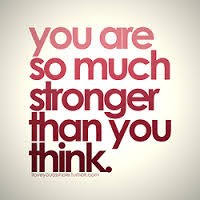 Myth: Cutting carbohydrates helps you lose weight
Myth: Cutting carbohydrates helps you lose weightDoing it the wrong way can also make you feel rotten and unhealthy. Carbs are to this decade what fats were to the last: food demons. Truth is, though, you need them for energy. And, like with fats, some are better than others. Experts suggest a minimum of 130 grams of carbs a day—a far cry from low-carb diets that start with 20 grams or less. Short-term effects of such diets include fatigue, constipation and irritability; long term, you could be putting yourself at risk for heart disease and colon cancer.
They can actually do the opposite. You may be doing yourself more harm than good by scanning labels for the lowest calorie and fat counts. Prepackaged diet foods can have a lot of sugar and trans fat.
That can actually hurt you. Cut your calories too far—below 1,200 a day—and youll end up with a double whammy that quickly decreases your metabolism and muscle mass. To get the most out of the calories you do eat, choose whole foods such as produce, fresh meat and fish, and whole grains that are as close to their natural state as possible. They have a higher “nutrient density” than refined foods, because they pack more vitamins and minerals into fewer calories.
Cutting dairy just shoots you in the foot (and fat cells). Combined with calorie control, a dairy-rich diet can nearly double body-fat reduction and weight loss and help prevent weight gain. Part of the reason is the hormone calcitriol, which helps conserve calcium for stronger bones while telling fat cells to convert less sugar to fat and burn more body fat. The result is leaner fat cells and a leaner you. Stick to the governments latest dietary guidelines, which recommend three servings of low- or nonfat dairy a day.
There are lots of whole-grain poseurs out there. Look for labels where “whole-wheat” or “whole-grain” top the list. Its worth the extra effort: More and more research is finding that whole grains reduce your risk of many chronic ailments, from obesity and diabetes to cardiovascular disease. The extra fiber in whole grains is key: It makes you feel full, which means you eat less. It also helps level out the peaks and valleys of insulin that a meal produces. An added boost: Whole-grain foods tend to be higher in vitamins B and E than refined grains.





